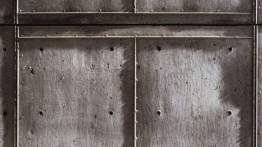David Leatherbarrow / ARCHITECTURAL PERFORMANCE: BETWEEN PRODUCTION AND REPRESENTATION
Thursday, March 22, 2012, 6 - 7:30pm

6PM | RM 315 | FOUNDATION BUILDING
David Leatherbarrow is Professor of Architecture, Chairman of the Architecture Ph.D. Program, and Interim Chair at the University of Pennsylvania, where he has taught architectural design, history, and theory since 1984. Before Penn he taught at Cambridge University and the University of Westminster. David Leatherbarrow earned his Bachelor of Architecture degree at the University of Kentucky and his Ph.D. in Art at the University of Essex. His books include Architecture Oriented Otherwise (2009), Topographical Stories: studies in landscape and architecture (2004), and Surface Architecture (2002), written in collaboration with Mohsen Mostafavi. Earlier books include Uncommon Ground: architecture, technology and topography; The Roots of Architectural Invention: site, enclosure and materials; and On Weathering: the life of buildings in time, again with Mostafavi. In addition to these books he has published over eighty scholarly articles. In the past, his research has focused on various topics in the history and theory of architecture, gardens, and urbanism; more recently his work has concentrated on the impact of contemporary technology on architecture and the city.
Open only to students, faculty, and staff of The Cooper Union.




